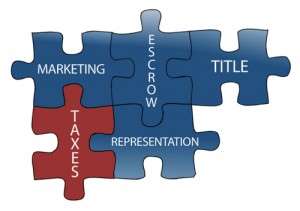TAX EXEMPTION WHEN BUYING A PROPERTY BEFORE 31/12/2012

Regarding the current financial situation, which is reflected in the drop of property sales in Spain every three months, the Spanish Government has passed a new tax exemption. This exemption tries to promote the sale of properties and may become very interesting for both individuals and bodies corporate considering buying a real estate property in Spain in the short term, whether they purchase commercial premises, homes, offices, garages, plots, storage rooms, etc.
On the 12th of May 2012, the Central Government passed the Spanish Royal Decree-Law 18/2012 of 11th of May on the restructuring and sale of the property assets of the financial sector. This regulation included in its First, Second and Third Final Provisions the tax exemption for bodies corporate and individuals, whether resident or non-resident in Spain. This reform law allows all those buying a property from the 12th of May 2012 till the 31st of December 2012 to pay taxes only on the 50% of the capital gains tax when selling the property subsequently, whether in 1, 5, 10…etc years, while the remaining 50% is free of charges.
This exemption may save an important amount of money, because if a property is currently sold in Spain, capital gains are taxed at 21% for non-residents (19% from 2014), at 27% for resident taxpayers in Spain (21% from 2014) and at 30% for bodies corporate.
Here we present an example: imagine you are thinking about buying a property in Spain considering the current market opportunities; the price for this property may be EUR 200,000; the following eventual scenarios may occur according to the date of purchase when selling this property, for example, in 2017 for a sale price of EUR 270,000:
1) Non-resident taxpayers: EUR 70,000 of capital gains at 19% makes a total payment of EUR 13,000; if the purchase is performed before the 31/12/2012, the total payment would be EUR 6,650.
2) Resident taxpayers: EUR 70,000 of capital gains at 21% makes a total payment of EUR 14,700. If the purchase is performed before the 31/12/2012, the total payment would be EUR 7,350.
3) Corporate: EUR 70,000 of capital gains at 30% makes a total payment of EUR 21,000. If the purchase is performed before the 31/12/2012, the total payment would be EUR 10,500.
Obviously, this tax saving is not definitive in order to decide whether to buy a property or not in Spain, as it is not possible to know whether prices may go down much more nor the gains resulting from the eventual property sale. However, this fact may be a helpful factor to take a decision for those considering buying a property, especially for those non-speculative potential buyers whose main purpose is to enjoy this property for many years; thus, the longer they own the property, the greater the capital gains may be when selling it. Look at the figures and draw your own conclusions.
Author: Gustavo Calero Monereo, C&D Solicitors (lawyers)
Torrox-Costa (Malaga/Costa del Sol/Andalucia)








